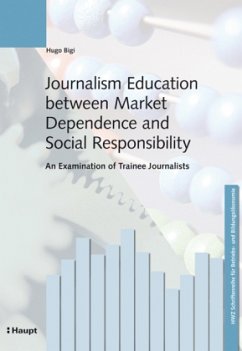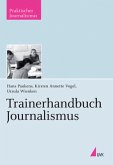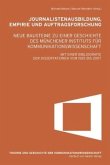Journalism education is considered to be preparation for and corrective to journalism practice. It is supposed to enrich the quality of journalism by improving the quality of journalists. This book examines to what extent journalism training empowers newcomers to adapt to the fast changing news world in order to guarantee the improvement of journalistic quality and to serve a vital democratic function in our society. Using the example of Switzerland, the examination focuses on the industry-oriented model of off-the-job training operated by MAZ The Swiss School of Journalism in Lucerne. 30 one-on-one in-depth interviews conducted with trainee journalists are thematically analysed. These analyses show why off-the-job journalism training is more an individualising than a socialising agent. They demonstrate why contemporary journalism practice is less society-oriented than is conceived by journalism schools. The findings exemplify why the latest generation of news manufacturers does not give weight to social responsibility in the first instance, but strives for the improvement of employability instead. It is outlined why 24/7 news production supported by a closely tied model of training is hardly able to recalibrate journalism s traditional but dwindling mission to serve a democratic function in our society. The author claims that journalism training is too important to be left to the industry and suggests measures to be taken from a wider social and political scope.
Bitte wählen Sie Ihr Anliegen aus.
Rechnungen
Retourenschein anfordern
Bestellstatus
Storno








